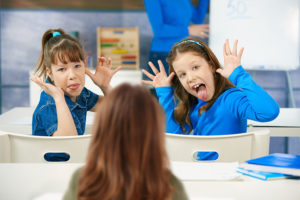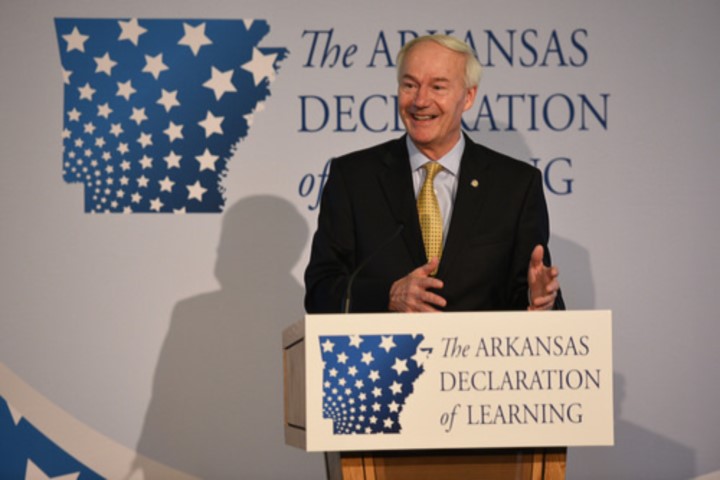Hot Springs Intermediate School social studies teacher Pamela Wallace takes her Declaration of Learning seriously.


Hot Springs Arkansas Intermediate School social studies teacher Pamela Wallace takes her Declaration of Learning seriously.
The sixth-grade teacher, along with Lake Hamilton High School librarian Jil’Lana Heard, was recently recognized for dedication to the Arkansas education initive, which was created in 2013 to connect students with history and promote civic engagement.
The Sentinel-Record reports:
The program uses historic art and objects from state and national museums and libraries to develop innovative lesson plans centered around civic engagement …
Wallace said … that because of the program, students are aware of constitutional rights and ways to be contributing citizens to their communities.
Wallace and Heard, who were presented with awards from Gov. Asa Hutchinson for their efforts, were among 26 educators who took part in the 2017-18 program.
“I’m so proud of Mrs. Wallace’s accomplishment,” Hot Springs School District associate superintendent Becky Rosburg said. “She is an awesome social studies teacher and I know she will take what she learned in the program and implement it into her lessons. Her sixth-graders are going to love going to social studies class next year.”
Wallace said “the program impacted the future leaders’ views of active citizenship in the local community with each knowing that citizenship is more than voting.”
Heard, who mentored other Declaration of Learning teachers, added that helping to connect students with real artifacts from history is a rewarding experience.
“My participants took strategies learned at the summit and engaged their students into making a difference in their community,” she said. “I am thankful for the opportunity to watch these amazing educators grow.”
In his book “The Death of Character,” Institute for Advanced Studies in Culture founder James Davison Hunter points to esteemed sociologist Charles Moskos’ perspective on the importance of developing a shared sense of civic virtue.
“ …(A)s Charles Moskos put it, ‘because of the relative weakness of other forms of community …, our cohesion depends upon a civic ideal rather than on primordial loyalties,’” Hunter wrote. “In this way, service-learning as a vehicle of civic education can be a means by which communities are drawn together again.”
The Declaration of Learning is one of many civics programs gaining momentum in schools across the country in recent years.
The Center for Civic Education is another that offers a framework for civics called CIVITAS, which “sets forth in detail the civic knowledge, skills, dispositions, and commitments necessary for effective citizenship in the 21st century.”
The CIVITAS program was crafted with the help of nearly four dozen scholars that promotes “civic competence and responsibility among young people and encourages their participation in the political and civic life of their communities and the nation,” according to its website.
“Presented in clear, easy-to-use format, CIVITAS is a valuable resource. Major topics are civic virtue, civic participation, and civic knowledge and skills.”